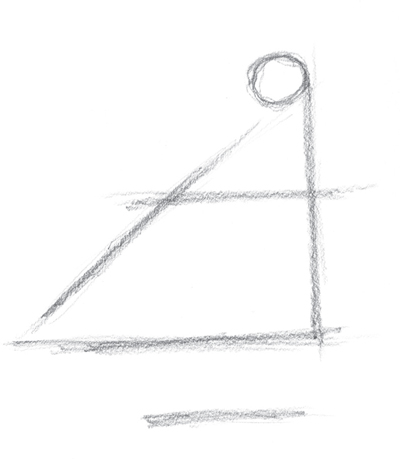
With their bold contrasts of lights and darks, Canada geese make a good subject matter for drawing. In this picture, their webbed feet are lost in the snow, making the drawing process a little easier. The winter sky is darker at the top and gradually gets lighter as it goes downward. The tall grasses are drawn over the sky. The structural sketches of the geese can be done separately and then combined for the final drawing.

With a 2B pencil, sketch two horizontal lines, a vertical line on the right and a diagonal line on the left for the proportions of the body. Add a circle for the head and a horizontal line below the body for the feet, which will be hidden by the snow.
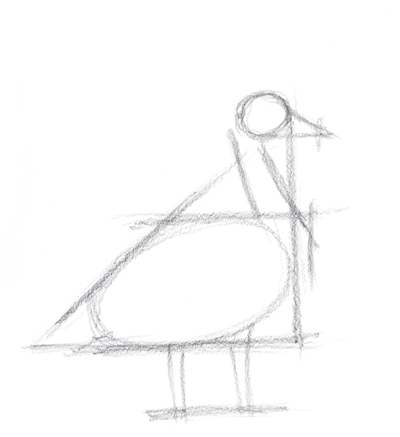
Develop the overall form of the goose by sketching an oval for the body and adding straight lines for the neck, beak and legs.
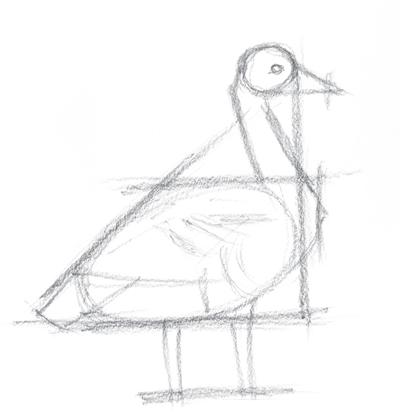
Start to add details with the 2B pencil, adding form to the neck and placing the feathers and the eye.
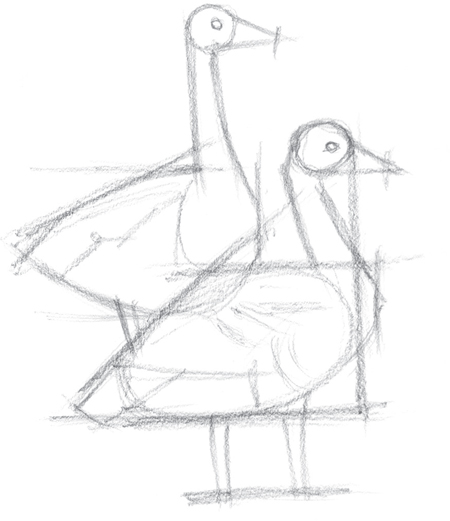
Following the steps used to sketch the foreground goose, sketch the goose in the background.
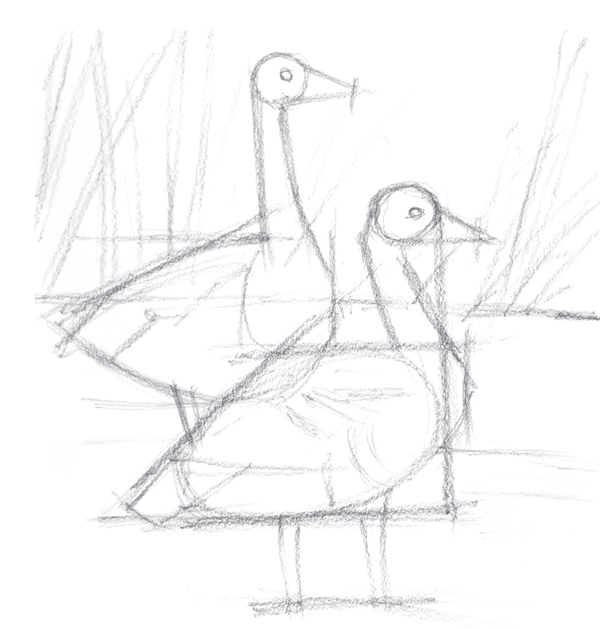
Add lines for the background including the grass. Some lines can be added to the foreground for the contours of the snow.
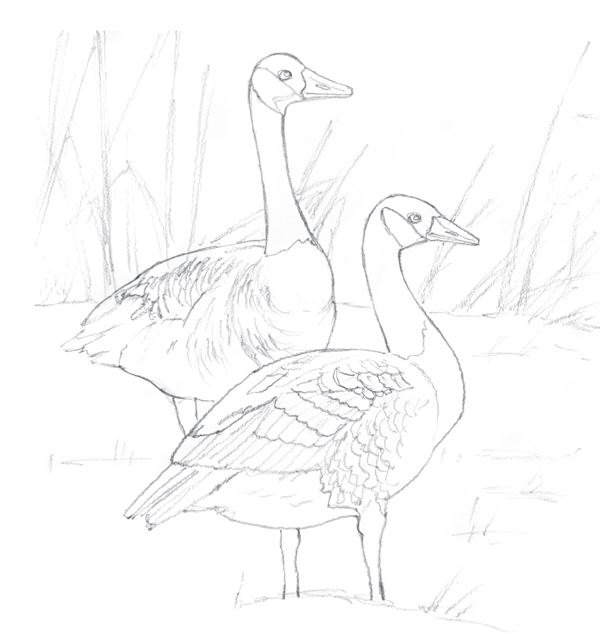
Erase any unwanted lines or transfer the sketch onto drawing paper, leaving out unwanted lines. Add detail lines such as the feathers.
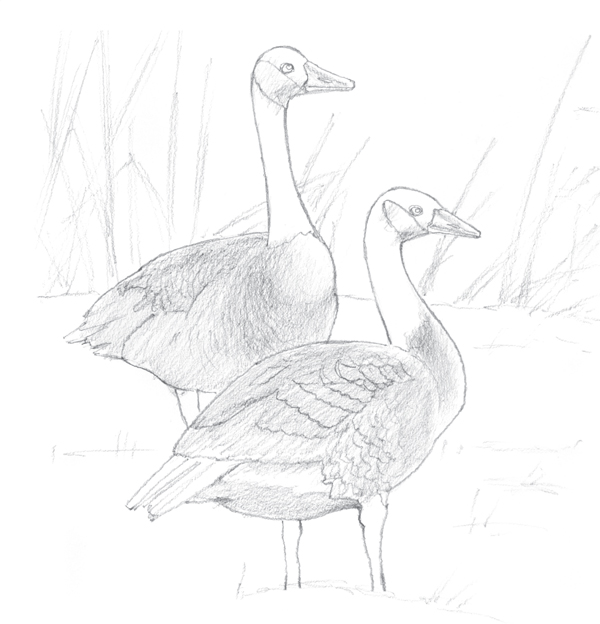
With the 2B pencil, add the lighter values to the geese.
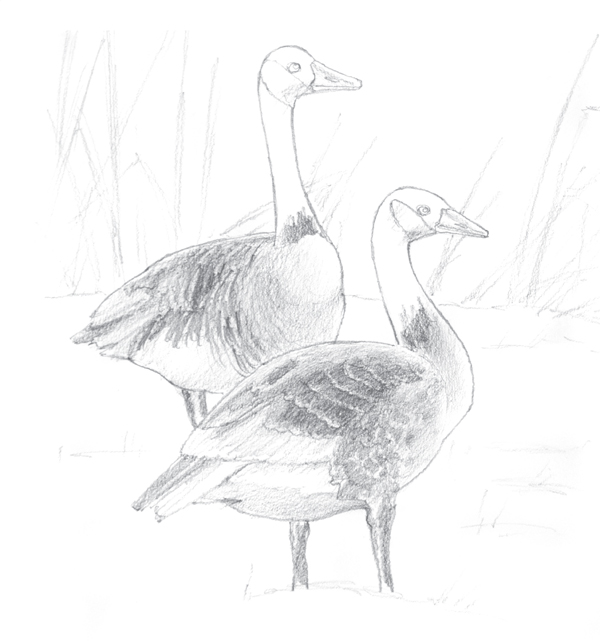
With a 4B pencil, add the middle values to the geese. Many of the feathers are lighter at the ends.
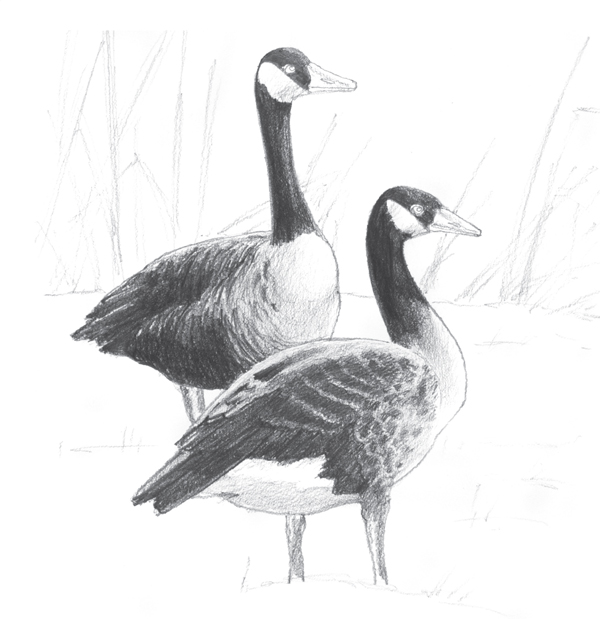
With a 6B pencil, add the darker values to the geese.

With the 4B pencil, add values to the sky so that it appears darker at the top.
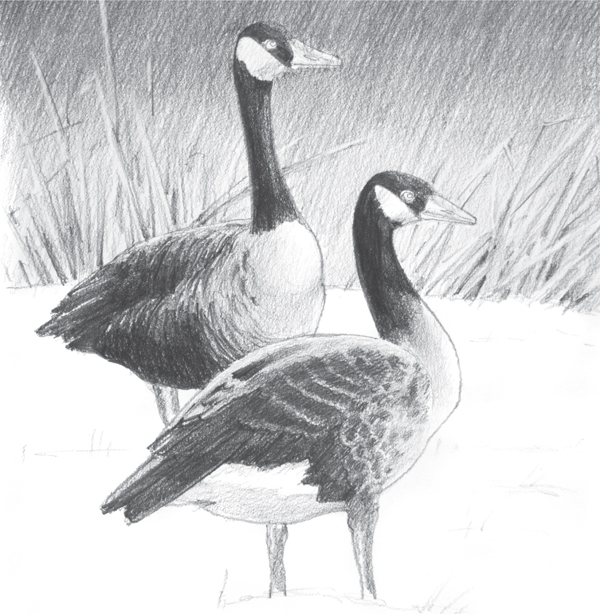
Add the grass in the background, first by erasing some of the grass that has been darkened by shading in the sky, then by drawing in some of the grass.
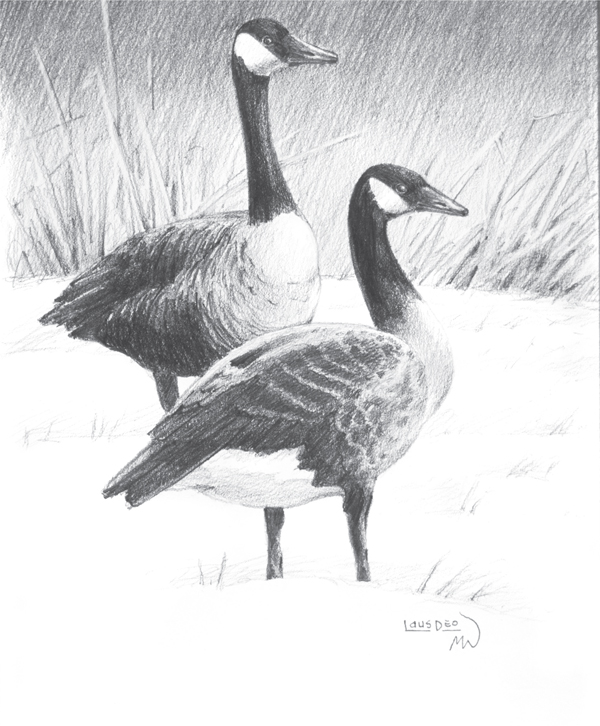
WINTER GEESE
graphite pencil on drawing paper
10" × 8" (25cm × 20cm)
Add details to the geese and values to the foreground grass and snow. Make any necessary adjustments. Sign the front and date the back.